Susanne Bredehöft
出生 : 1957-06-19, Köln, Germany

(voice over)
Contemporary cinema’s preeminent chronicler of architecture and its intersection with the ever-present crisis of 20th-century modernity, Heinz Emigholz returns with an alternately mournful and sly treatise on how the presence—and, in some cases, absence—of municipal and communal building architecture is inseparable from capitalist ideology. Focusing mainly on cities and provinces in Argentina, Germany, and Bolivia, Emigholz’s latest film is a work of quiet observation and historical excavation. From slaughterhouses in Salamone to the flooded former spa city of Epecuén to the newly built Humboldt Forum in Berlin, the film demonstrates the effect of capital on public spaces, where creation and destruction go hand in hand, and as always, Emigholz makes the journey one of intellectual force and cinematic beauty.
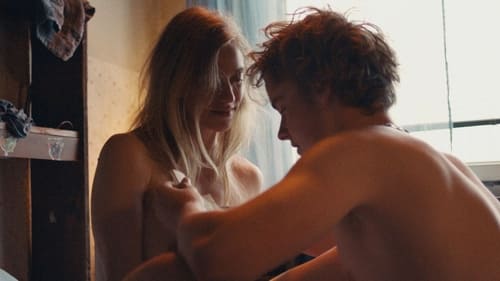
Hanne
Dance teacher and mother Nadja left her son Mario with her own mother when he was little. Now she has reappeared on his doorstep, seeking a closeness that knows fewer and fewer boundaries. An uncompromising film about family relationships.
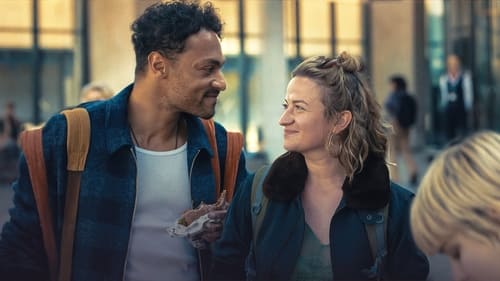
Annette
When her best friend Jojo falls in love and moves on from their wild dating adventures in Berlin, Paula does everything she can to sabotage her wedding.
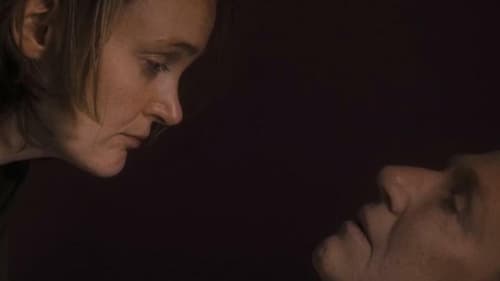
Birgit
Kerstin is in great pain. Her daughter Juliane wants to help her die, but the law forbids it. Jessica Krummacher’s second feature describes the most important of events via tiny details that stay with us and get under our skin.

Frau Naujoks
The shy Hugo is a caretaker in a prefabricated building. He feels at home here, is appreciated by the residents and sings his songs in the corridors. Dramatic changes make Hugo uncomfortable in his home. Similarly dissatisfied is Johanna, who lives in a bus in front of the house and faces racism and sexism on a daily basis. The two grow closer - sharing a sense of not quite belonging and, above all, a love of music. For Hugo, the world is visibly coming apart at the seams: birds that reject freedom, a dollhouse that develops a life of its own - At the same time, a catastrophe is brewing in very real life that puts Hugo and Johanna's friendship to the test.

Nonne

Frau Stechbart
30 years ago, Juri fled the GDR for the West via the Prague embassy and built up an existence in Canada. Thirty years later, he returns to his hometown of Eisenach to take care of his demented father, a former veterinarian. He also meets his former girlfriend Katharina again, who did not follow him onto the embassy grounds back in Prague and whom he has not seen again since. Katharina has been married for years now and is the mother of a grown-up son and a teenage daughter. She helps Juri find a place for his father in a nursing home and soon feels drawn to Juri again. Juri wants to return to Canada, but since the home placement for his father fails, Juri stays in Eisenach.

Victoria, a transgender woman, embarks on a journey in search of release from the burden of the body and its limitations.

Using unpublished and newly digitalised archive footage and film material, Bettina Böhler has brilliantly assembled this film about the life and work of the exceptional artist Christoph Schlingensief, who died in 2010.
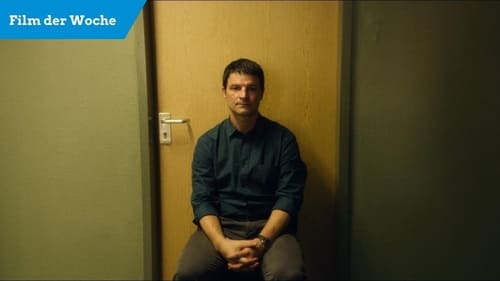
Sekretärin
Exil tells the story of a chemical engineer of foreign origin who feels discriminated and bullied at work, plunging him into an identity crisis.
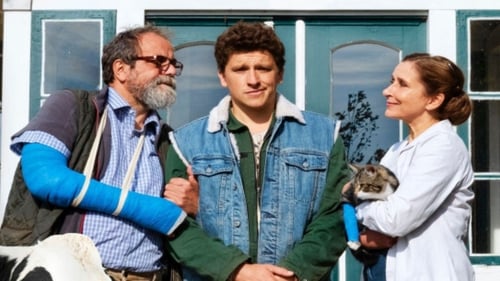
Karola Pieper
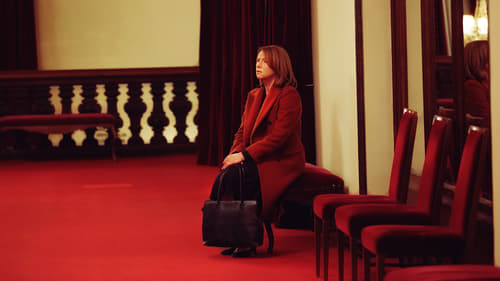
Frau Spengler
It's Lara's 60th birthday, and she has every reason to celebrate: this evening, her son Viktor will be giving the most important piano concert of his career. Lara was, after all, the one who'd mapped out and driven his musical career. Yet Viktor has been unreachable for weeks and nothing indicates that Lara will be welcome at his debut performance. Without further ado, she buys up all the remaining tickets and hands them out to everyone she meets. The more Lara strives to make the evening successful, however, the more events get out of control.

Summer 1989, East Germany. Adam works as a tailor, Evelyn as a waitress. They are planning a vacation together when Evelyn finds out that Adam is cheating on her and decides to leave for the holiday on her own.

Nonne
After the death of her father Georg Inga Hauck drives together with her son Max in their home village. In her old home she meets Anna Kertesz. Inga's parents had taken Anna 28 years ago after her adult brother Zoltan mysteriously disappeared. Since the same day also Ingas was missing then six-year-old brother Magnus. Inga is being overtaken by her past in her parents' house. Soon her nerves are bare. And every day her memories come back.
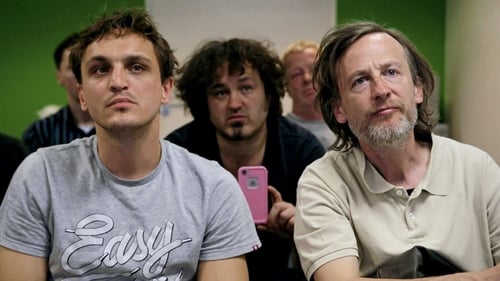
Wilson
Burned out and lonely Rocky is almost 50 years old and has seen better times as a womanizer. One day, Thorben shows up at his door claiming to be his son. He is trying to get advice on how to be successful with women.
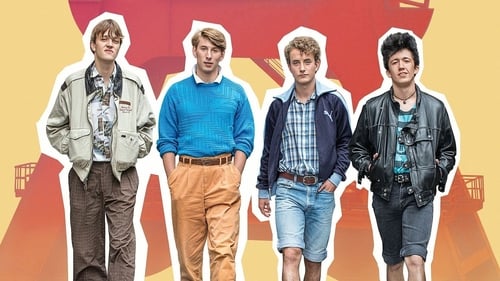
Wirtin im Anni
Four teenage friends - Frank, Spüli, Mücke, and Pommes - try to have their first contact with the opposite gender. Not so easy in the Ruhr region of the 80s. Attempts at dancing and being in a band go wrong, and their parents and teachers can't help with that, so the four teens need to get creative.

Lotte
Helena, 29, a single mother with an 11-year-old daughter, is a moderately successful actress who earns a living as an escort in the sex industry. Her relationship with her own mother, a singing teacher, is tense, and she’s also increasingly annoyed with her job. Meeting David offers her an opportunity.

Herself
Documentary satire about a project by Christoph Schlingensief: Ten years after his TV project "Talk 2000", Schlingensief started to work on a new talk show – at least that was what he claimed. But in reality, it was obvious that the pilot episodes he produced would never be broadcasted. Nevertheless, all celebrities from the political and cultural sphere, Schlingensief had requested, accepted his invitation, including the filmmaker Oskar Roehler, the televangelist Jürgen Fliege, the politician Claudia Roth, or the rapper Sido. It is beyond question, that the talk show panel took an unconventional course directly from the start – and was soon threatening to turn into an uproar.

Mutter

Cologne towards the end of the Second World War. The city is in ruins, everyone is afraid, many are dead. It is a time of great inhumanity. Cologne’s young Edelweiss Pirates refuse to submit to the pressure of the Nazi regime. They fight with the Hitler Youth and scrawl anti-war propaganda on walls. Karl is an Edelweiss Pirate; his younger brother, Peter, is in the Hitler Youth movement. The two young men have been alone ever since their mother’s death in a bombing raid; their father is serving at the front, and their older brother, Otto, has been killed in action. Otto’s financée, Cilly, is doing her best to survive the war with her children. Carl is trying to help her.

As stated in the opening titles and at the end Freakstars 3000 is supposed to be a commentary on the problems of the non-disabled people. The more I was shocked about how the disabled were depicted in this film the more I started to realize that in every non-disabled TV counterpart of this show (German TV shows like "Popstars" or "Friedmann" or the home shopping channels) its mentally "non-handicapped" participants are treated in a completely identical way: The total prostitution of the mind in front a huge TV audience at the expense of one's most important gifts one should hang on to: dignity. On the other hand one could completely understand people who are furious about "exploiting" these handicapped persons. But that's what Schlingensief's works are all about: shock people and don't care about those who cannot or will not try to get the message (if there is one).
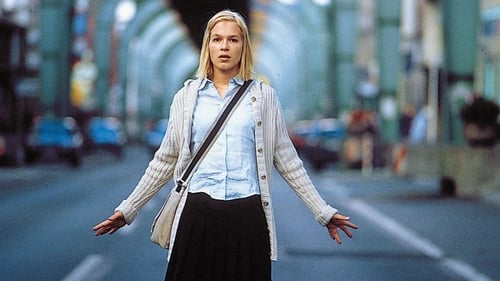
Zewil
Young nurse Sissi lives a secluded life entirely devoted to her patients at Birkenhof asylum. Her first encounter with ex-soldier and drifter Bodo has a lasting impact. He causes an accident in which he provides first aid, Sissi wonders if he may be the man of her dreams. But when she finds him weeks later she is rejected, as Bodo is stuck somewhere between a traumatic past and a criminal future.

Roswita / Rainer Werner Fassbinder
A mockumentary directed by Christoph Schlingensief.
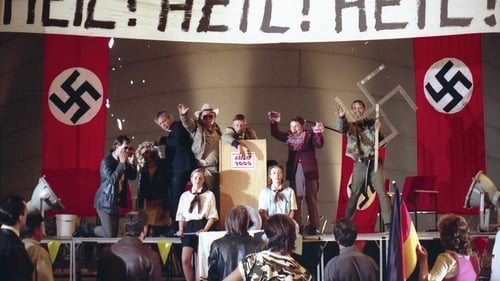
Martina
Germany, right after the re-unification. The people are out of control, blind hatred towards immigrants is common sense. In this time, a social-worker, with the mission to bring a Polish family to their destination (an immigration camp in a little provincial town called Rassau), gets kidnapped just as the family. Chief inspector Koern and his girl-friend start to investigate in this matter in Rassau, exploring a world of obsessive sex, mislead lust and an over-whelming irrational love to the German nation, infiltrating anyone's mind. Rascism doesn't start with shaved hair and boots but rather in the middle of society itself...
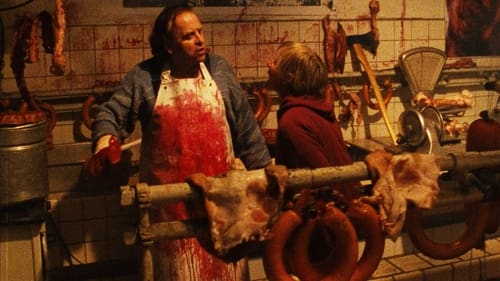
Claras Mann
Taking place around the German reunification of 1990, a group of East Germans cross the border to visit West Germany and get slaughtered by a psychopathic cannibal family who want to turn them into sausages.
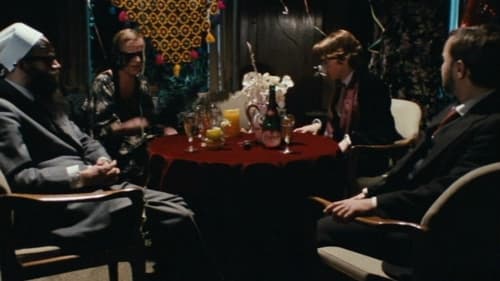
Els
Mutters Maske aka Mother's Mask is a free adaptation of the film Opfergang (1944) aka The Great Sacrifice of Veit Harlan. Schlingensief exposes his source material's dangerous proximity to kitsch and camp by reducing the genre conventions known from Harlan, Sirk, Fassbinder & Co to the level of a daily soap: set within a noble family from the German Ruhr, Schlingensief's story revolving about Willy von Mühlenbeck's tragic love to terminally ill neighbor girl Äls (Susanne Bredehöft) and the inheritance intrigues by his evil brother Martin von Mühlenbeck (Helge Schneider) creaks with melodramatic devices and self-conscious dialogues. Rather than being a mere spoof, "Mother's Mask" is perhaps Schlingensief's purest black comedy.





















